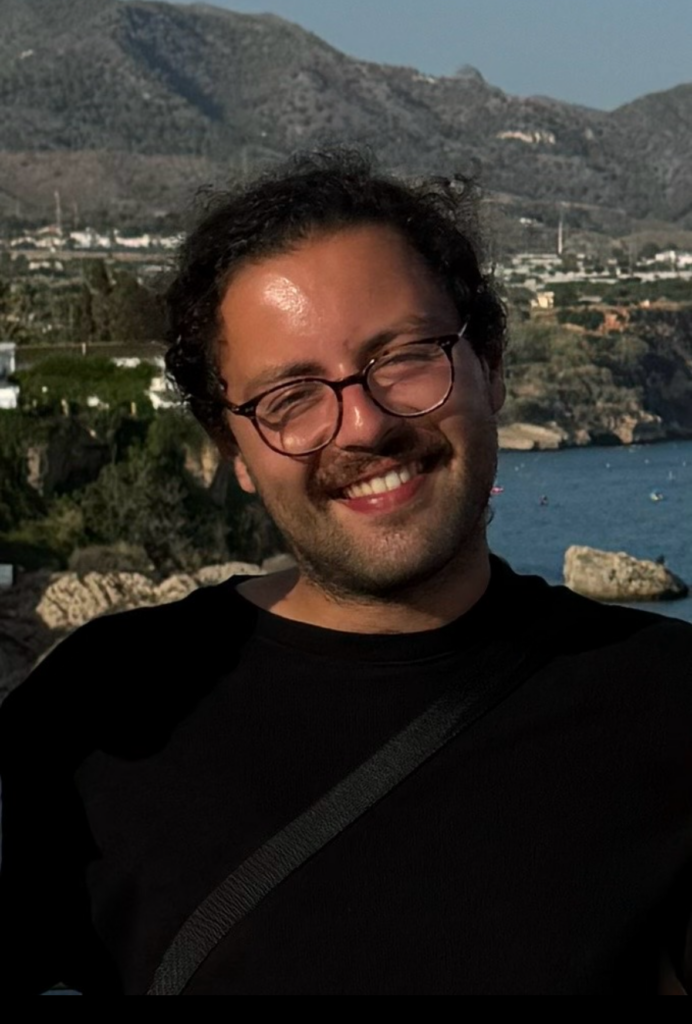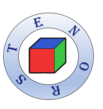
Younes Naceur
Nationality: German
Host: ICFO – The Institute of Photonic Sciences
| Background:Born and raised in Hannover in northern Germany, Younes finished school in 2017, after which he decided to go to Australia for a year of work and traveling to widen my horizon and to improve his English. After that he started my Bachelor’s in Physics with a minor in Computer Science at Leibniz University Hannover, where he quickly learned that theoretical physics, and its intersections with mathematics and computer science is what fulfils him most. During his exchange year at the Universidade de Lisboa in Portugal and through my Bachelor’s thesis about measurement-based quantum computing he found his passion for quantum information, where counterintuitive phenomena like superposition and entanglement fascinated me from the very start. After completing his Bachelor’s he attended his Master’s in physics first at Sorbonne Université, and then at École Normale Supérieure in Paris, where he was supported by the German Academic Exchange Service. In his second year he wrote my Master’s thesis about Gaussian Quantum Information under the supervision of Prof. Cristiano Ciuti. |
| Master thesis: In his Master’s thesis he developed new computational techniques to simulate the dynamics of so called bosonic states in phase space. By approximating their Wigner function phase space representation in terms of superpositions of Gaussian probability distributions, this technique allows one to capture the full dynamics of the state in terms of the Gaussian mixture’s parameters without having to simulate the dynamics of infinitely many density matrix elements. This technique has been studied on the example of Cat states, a promising encoding of discrete quantum states into photonic cavities, where we investigated the dynamics of the emergence of Cat states out of the vacuum by introducing a tailored two-photon pump to the cavity.hisms. |
| PhD Goals: His project in the framework of the TENORS network is DC14, “Tensor and Polynomial Optimisation for Quantum Information Networks”. By exploiting methods from polynomial optimisation, like semi-definite programming hierarchies, this projects aims to find bounds to quantum correlations in the case of networks with many entangled parties and possibly many sources of quantum states. After the recent Nobel prize awarded to Prof. Alain Aspect for the experimental demonstration of the violation of the Bell-inequality, this area of research received a lot of deserved attention. The phenomena of entanglement and non-locality have been studied in the simple Bell case, while the effects of entanglement on a quantum network are still an active field of research. For me the connection between mathematically rigorous theories and their counterintuitive predictions that can be validated in the real world is what fascinates me most, which is why he’s more more than eager to contribute to this exciting field of research. His dream is to become a researcher in quantum information theory to work using tools from mathematics and computer science. In this context, a constructive collaboration between academia and industry encouraging applications of the newly acquired knowledge is very important to him, which is why he highly values the industrial collaborations in the network. Another important point for him which he learned to value through the various countries he lived and worked in is a constructive exchange between researchers from different backgrounds, which is also a crucial point in the doctoral network. Because of all these points he’s sure that the position as a doctoral candidate in the TENORS network is the perfect next step to reach his goal of being able to conduct cutting-edge research in quantum information with applications to real use cases. |
| Hobby: In his free time he enjoys travelling and discovering different cultures and their cuisines. Besides that he plays the piano and produce electronical music, and last but not least he love being outside in the nature and being. |




